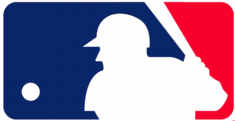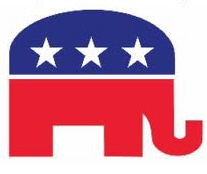House and Senate GOP Rooting for NL Victory in Tuesday’s All-Star Game
Since 1950, gains of 5+ Republican seats in the U.S. Senate and 10+ GOP seats in the House have always been preceded by a National League victory in the summer classic

While partisan control of the Senate may be a toss-up, prognosticating which party will make gains in the nation’s lower legislative chamber – and how big those gains will be – has also been difficult, complicated in part by redistricting and a large number of retirements.
And although there may not be a crystal ball for the congressional elections this November, there is one made of leather that can help political observers navigate these muddy waters.
And the first pitch with that leather ball will be thrown by Detroit’s Justin Verlander on Tuesday evening in Kansas City.
A Smart Politics analysis finds that since 1950 all nine cycles of Republican gains of 10+ seats in the House and all five cycles of 5+ seat gains in the Senate occurred in years in which the National League won the Major League Baseball All-Star Game.
So just how strong is the correlation between partisan surges in Congress and the all-star classic?
Consider this.
Heading into the 2010 matchup, the National League had won the All-Star game the last eight times Republicans had made gains of 10+ seats in the House and the last four times the GOP made gains of 5+ seats in the Senate over the previous 60 years.
Republicans, of course, were poised to make big gains in both chambers in November, but there was just one problem: the National League was in the midst of a 13-game winless streak (including the infamous tie in 2002).
However, the winds of change not only blew the GOP into control of the House that November, but also ended the National League drought in dramatic, late-inning fashion.
The NL rallied from a 1-0 deficit in the 7th inning on a bases clearing double by Atlanta Braves catcher Brian McCann, plating Cincinnati’s Scott Rolen, St. Louis’ Matt Holliday, and the Chicago Cubs’ Marlon Byrd en route to a 3-1 victory.
And thus a National League victory proved once again to be a necessary (though not sufficient) condition for substantial Republican gains in the general election.
The last nine Republican House gains of 10 or more seats over the last 60+ years have now all been preceded by the NL winning the summer classic:
·In 1950, Republicans gained 28 seats in the House following a 4-3 NL victory at Comiskey Park in Chicago.
·In 1952, Republicans netted 22 House seats after the National League nipped the AL by a 3-2 score in Philadelphia.
·In 1960, the GOP won 21 seats with Richard Nixon at the top of the ticket as the NL defeated the AL in both all-star games held that July: on the 11th in Kansas City (5-3) and the 13th in New York (6-0).
·In 1966, Republicans made back all of the ground lost in the ’64 election and then some with a 47-seat gain following a 2-1 National League victory at Busch Memorial Stadium in St. Louis.
·In 1972, the GOP netted 12 House seats following a 4-3 NL win in Atlanta.
·In the 1978 midterms, Republicans gained 15 seats after a decisive 7-3 NL victory in San Diego.
·In 1980, Republicans gained 34 seats following the National League 4-2 win over the AL at Dodger Stadium in Los Angeles.
·In 1984, the GOP netted 16 seats after the NL won a 3-1 contest at Candlestick Park in San Francisco.
·In the Republican Revolution of 1994, the Party gained 54 seats following the NL’s 8-7 victory in Pittsburgh.
·In 2010, Republicans racked up a 63-seat gain after the NL won 3-1 in Los Angeles.

Mitch McConnell and the Republicans in the U.S. Senate are aiming to wrestle back control of the chamber for the first time since the end of the 109th Congress in January 2007.
To do so they will need to net four seats, but McConnell is fighting for even more breathing room (in case they have another Arlen Specter in their midst).
A National League victory might go a long way toward that end.
Every time the GOP has gained 5+ seats in the nation’s upper legislative chamber since 1950 their surge has been preceded by a National League victory earlier in the summer:
· In 1950, the Republicans netted five seats after the National League won 4-3 in Chicago.
· In 1968, the GOP netted five seats once again, four months after the NL blanked the AL 1-0 in Houston.
·In 1980, Republicans gained 12 U.S. Senate seats and control of the chamber on the heels of the National League doubling-up on their AL counterparts with a 4-2 victory in Los Angeles.
· In 1994, the GOP won eight seats and control of the Senate after the NL escaped with an 8-7 victory in Pittsburgh during the strike-shortened season.
· Finally, in 2010, the NL’s dramatic 3-1 victory in Los Angeles set up the Republicans erasing a large swath of their deficit in the senate, netting six seats in November.
While Harry Reid and the Democrats will probably be happy just to hold serve, it is worth noting that every time the Democratic Party has gained 5+ seats in the U.S. Senate since 1950 the American League won that year’s All-Star game:
· In 1958, Democrats scored a 16-seat gain in the midterms after the American League won 4-3 that July in Baltimore.
· In 1986, Democrats gained eight seats and took back control of the Senate following a 3-2 AL victory in Houston at the Astrodome.
· In 2006, Democrats won control of the chamber with a six-seat gain after the AL won 3-2 in Pittsburgh.
· In 2008, Democrats bolstered their advantage in the Senate with an eight-seat gain following a 4-3 victory by the AL in New York at Yankee Stadium.
Since the late 1940s, congressional Republicans have never made substantial gains in either chamber during years in which the American League won the annual classic during this span.
In case you’re counting: there are twice as many baseball teams located in states carried by John McCain in the National League (four: Atlanta Braves, St. Louis Cardinals, Houston Astros, Arizona Diamondbacks) than in the American League (two: Kansas City Royals, Texas Rangers).
Follow Smart Politics on Twitter.
